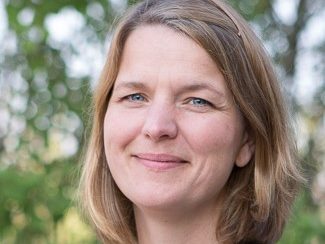Barbara Lochner
“When the playgrounds closed down, we had to look for alternatives. We were kicked out of public spaces because we were disturbing other people who were trying to work. Because the kids were too loud. […] And then we were shooed away from everywhere because the kids get a bit louder now and then. We were actually driven out of public spaces,” Ms. Anton says in an interview. Closed. Kicked out. Too loud. Shooed away. A bit louder. Should children perhaps be a bit louder amid the pandemic?
Ms. Anton’s words reveal how childhood is viewed in our society: Being a child is associated with being assigned to places designed specifically for children and with exclusion from the public sphere. Since “public spaces” are by definition accessible to everyone, intended for everyone, that must also mean a child is not part of “everyone,” existing outside the community. “Everyone” is an adult. And yet, we need to include children in society. That’s why “special, protected places for children” were carved out of the world of adults (Zeiher/Zeiher 1991: 245) – playgrounds, for example, places that are designed with children’s anticipated needs in mind and crafted to give them spatial orientation.
The social practice of mainly limiting children’s lives to home and places made specifically for children is – as Ms. Anton’s remarks show – accepted in functional terms across society. It’s no problem for things to be that way as long as these places are accessible and available. Children learn that for them, being out in public means they are chiefly in transit to those places. The social practice of “special, protected places for children” is founded on the norm that a society that values children includes them and gives them room. But in the current crisis, it has become apparent that this kind of inclusion actually serves to exclude children as well (Jaeggi 2014: 293). Reality no longer lives up to the norm of the society that values children, showing that the norm itself is contradictory.

Barbara Lochner is a professor of child education at Erfurt University of Applied Sciences. She is a member of the scientific advisory council on coronavirus pandemic management of the state government of Thuringia and published one of the first studies of child well-being during the coronavirus pandemic in 2020. She also co-edited a compilation titled Das Projekt der Sozialen Arbeit. Konturierungen von Disziplin und Profession that year.